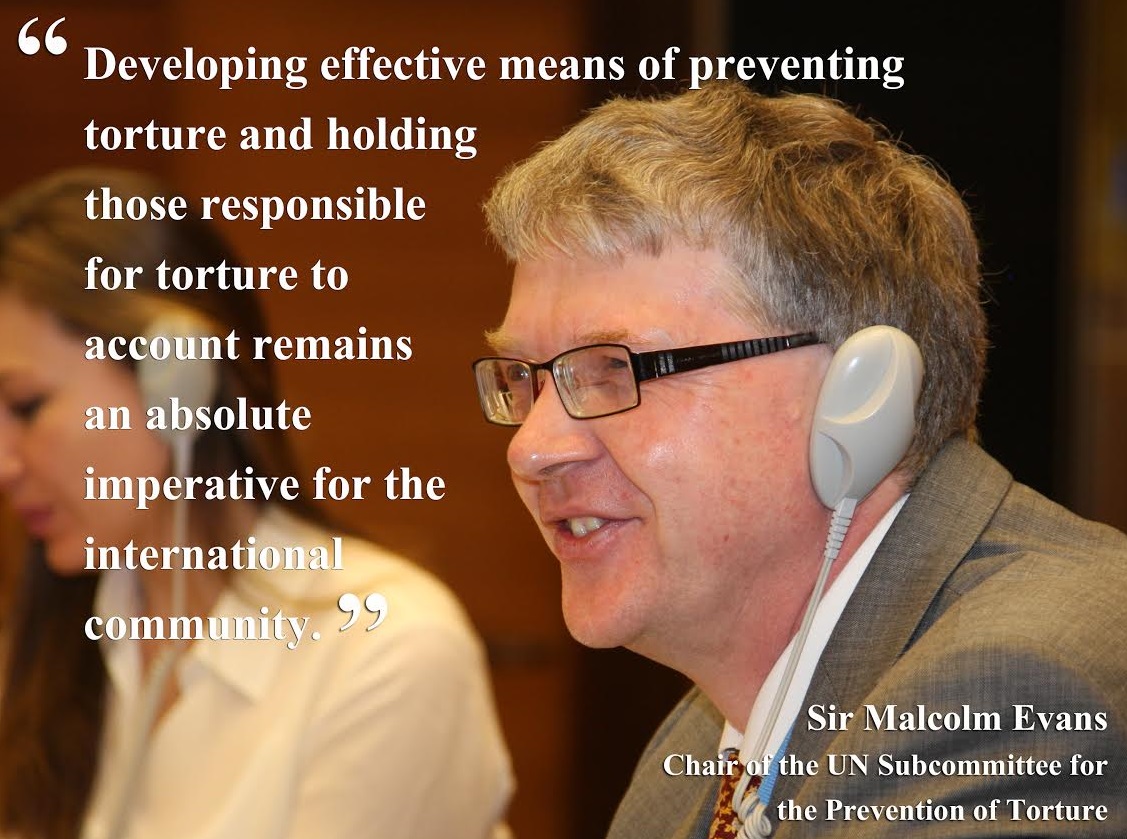Sir Malcolm Evans, who was recently re-elected at the Chair of the Subcommittee on Prevention of Torture (SPT), was speaking on the 10th anniversary of the Optional Protocol to the Convention Against Torture (OPCAT).
The SPT is responsible for ensuring that the OPCAT is implemented in practice with the emphasis of the mandate on practical ways to prevent torture from happening. This is done through the provision in the mandate that allows the committee to visit a country and its places of detention, unannounced, and “go where it wishes, and see who and what it wishes,” said Sir Malcolm.
In the last ten years, SPT members have completed more than 50 country visits, making recommendations that have resulted in many different issues, such as improved access legal representation, including for children, reinforcing guarantees for detainees, better access to rights-based information to prisoners, and better training for judges, police, prison staff and health professionals.
Perhaps the most impressive achievement under the OPCAT has been the establishment of so many national preventive mechanisms (NPM), many of whom do amazing work in countries where no prevention work of this nature was ever done before. It is a record of real, practical and meaningful achievement.
In its ten years, OPCAT has managed to bring about better protection against torture and ill-treatment in the 83 countries that have signed up so far. For the future, Sir Malcolm hopes more countries will accept its mandate by ratifying the OPCAT. Sir Malcolm concluded;
There will always be the need for the SPT because there is always a risk of torture and ill-treatment happening and so it is necessary to ensure that all possible steps are taken to reduce this risk as much as possible
Sir Malcolm Evans is featured in our Human Rights Day film, Making Change Happen.
